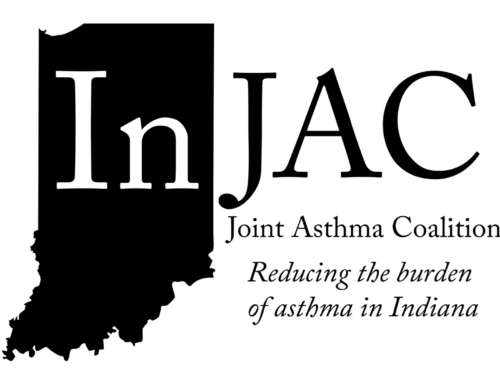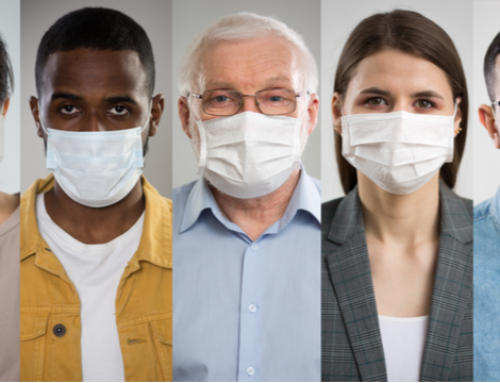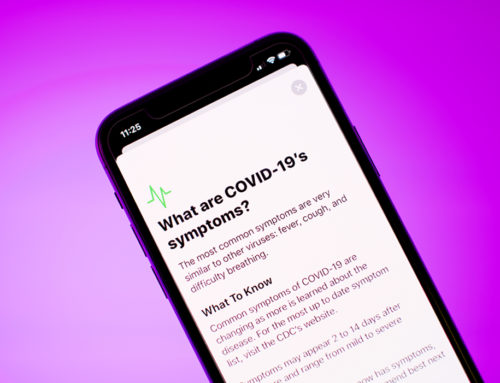Where can you find trusted sources of COVID-19 info?
Where can you find trusted sources of COVID-19 info?

Photo by Christina @ wocintechchat.com on Unsplash
Misinformation continues to abound online and on social media, especially around hot topics like COVID-19 and the vaccines. Specific social media sites are working to combat this, like YouTube’s commitment to ban content that contains inaccurate or misleading information about COVID-19 vaccines.
Knowing that it can be difficult to discern legitimate information from misleading content, it can be a challenge to find sources of credible information about COVID-19, vaccines, and the pandemic. We asked some of IU’s leading medical and public health experts what media sources they follow and recommend for factual and trustworthy information about the pandemic:
Dr. Gabriel Bosslet, @gbosslet
Bosslet is an associate professor of clinical medicine and assistant dean of the Office of Faculty Affairs and Professional Development at the IU School of Medicine. His sources include:
- Jeremy Faust, @jeremyfaust, an emergency medicine physician at Brigham and Women’s Hospital in Boston, and author of Inside Medicine.
- Micah Pollak, @micahpollak, an associate professor of economics at IU Northwest who has done extensive analysis of the pandemic.
- Trevor Bedford, @trvrb, a MacArthur fellow; associate member at , a collaboration of scientists and humanitarians who work together to prevent, diagnose and treat diseases; and affiliate associate professor in the Department of Genome Sciences and the Department of Epidemiology at the University of Washington.
- In the Bubble podcast hosted by Andy Slavitt, @aslavitt, and focused on the COVID-19 pandemic.
- The Osterholm Update, a weekly podcast on the pandemic hosted by Michael Osterholm, @mtosterholm, who is Regents Professor, McKnight Presidential Endowed Chair in Public Health and director of the Center for Infectious Disease Research and Policy at the University of Minnesota.
Dr. Aaron Carroll, @aaronecarroll
Carroll is chief health officer at Indiana University and distinguished professor of pediatrics at the IU School of Medicine. He writes regularly for The New York Times and The Atlantic, and he hosts Healthcare Triage, a YouTube show about health care, health policy and understanding health research. His recommendations include:
- The Atlantic’s science writers:
- Ed Yong, @edyong209
- Sarah Zhang, @sarahzhang
- Katherine Wu, @KatherineJWu, who is also senior producer of The Story Collider @storycollider, a podcast and show sharing true, personal stories about science.
- STAT News reporters:
- New York Times reporters:
- Dr. Ashish K. Jha, @ashishkjha, dean of the School of Public Health at Brown University.
Erika Cheng
Cheng is an epidemiologist, public health researcher and assistant professor of pediatrics at the IU School of Medicine and is one of the leaders of IU’s response to the COVID-19 pandemic. Cheng recommends:
- Indiana Clinical and Translational Sciences Institute, @IndianaCTSI, a research partnership among Indiana University, Purdue University and the University of Notre Dame. Among other things, Indiana CTSI produces a COVID-19 Daily Digest.
- JAMA’s COVID-19 page, a collection of articles from the JAMA Network.
- NPR, @NPRHealth, which maintains a series of articles in its Coronavirus Crisis section.
- CDC, @CDCgov. The federal health organization’s special section on COVID-19 includes information about all aspects of the pandemic.
Chandy John, @ChandyJohnLab
John is the Ryan White Endowed Chair in Pediatric Infectious Diseases and director of the Ryan White Center for Pediatric Infectious Disease and Global Health at the IU School of Medicine. He also leads the John Lab at the School of Medicine, which focuses its research on malaria. His suggestions include:
- Coronavirus in Kids Tracking and Education Project, @COVKIDProject, which monitors and compiles up-to-date data on COVID-19 in children and teenagers in the U.S.
- Edward Nirenberg, @enirenberg, a self-described “aspiring physician.” His website, Deplatform Disease, has some of the best and most careful dissections on the science about COVID-19
- Jeanne Marrazzo, @DrJeanneM, a researcher in the Division of Infectious Diseases at the University of Alabama Marnix E. Heersink School of Medicine.
- Eric Topol, @EricTopol, founder and director of the Scripps Research Translational Institute and professor of molecular medicine.
- healthychildren.org, @healthychildren, a website run by the American Academy of Pediatrics with in-depth information about COVID-19 and a number of other issues affecting infants through young adults.
Graham McKeen
McKeen is the assistant university director of public and environmental health at Indiana University and has been a leader in IU’s response to the COVID-19 pandemic. He recommends:
- Publicly available data and surveillance distributed by Johns Hopkins, The New York Times and the Indiana Department of Health.
- Marc Lipsitch, @mlipsitch, an infectious disease epidemiologist and professor of epidemiology at the Harvard T.H. Chan School of Public Health.
- Natalie Dean, @nataliexdean, an assistant professor of biostatistics at the Rollins School of Public Health at Emory University who focuses on emerging infectious diseases and vaccine study design.
- Peter Hotez, @PeterHotez, vaccine scientist, dean of the National School of Tropical Medicine and professor of pediatrics and molecular virology & microbiology at Baylor College of Medicine.
- Katelyn Jetelina, with a master’s in public health and Ph.D. in epidemiology and biostatistics. She maintains a blog called Your Local Epidemiologistthat works to “close the communication loop by providing a direct line of science to you.”
By Amanda Roach October 14, 2021



